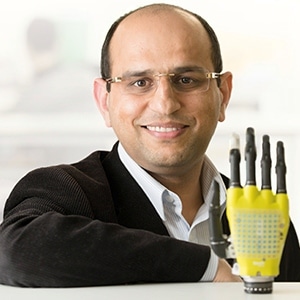Green electronics for linked farming, such as biodegradable crop sensors and organic photovoltaics, are being developed under the direction of Glasgow University.

A modular sensor system for crop monitoring will be investigated in this worldwide partnership, and its two component pieces will either biodegrade into the soil at the end of their useful lives or can be recovered and utilised again in other systems.
The biodegradable element will be the sensor patch itself. The study, according to the team, will investigate the usage of components like rice husks, fibrous proteins like wool, and biodegradable polymers like cellulose and starch that have been infiltrated with conductive metal nanoparticles comprised of copper and zinc. Instead of batteries, which have the potential to leak harmful materials into soil, energy will be stored in biodegradable supercapacitors to power the sensors using organic photovoltaics.
The sensors will be able to perform tasks like monitoring pH, temperature, and bioimpedance, according to project coordinator Professor Ravinder Dahiya from Glasgow’s James Watt School of Engineering, giving farmers visibility over key metrics as crop yields around the world come under increasing pressure from climate change.
“The internet of things has huge potential to revolutionise every aspect of human activity, from home lives to global industry,” said Professor Dahiya. “Harnessing the power of the internet of things is particularly attractive in farming, where the challenges of growing crops as we adapt to the unpredictable effects of climate change will require close monitoring of fields and quick responses to problems to maximise crop yields.”
“However, the proliferation of digital devices that underpin the internet of things is also leading to a massive expansion in digital waste. As much as 80 per cent of our electronic devices currently end up as waste. As potentially dangerous materials in components like batteries and printed circuit boards degrade, they create hazards to the environment and to human and animal health which can last for decades.”
The sensor system’s second component will be an electrical module with wireless communication capabilities. Reusability and repairability are top priorities in this module’s design, which aims to reduce system waste as much as possible. “What we’re setting out to do with this project is to build hardware which is designed from the start to be disposable without creating problematic waste,” Professor Dahiya continued. “In fact, the waste materials from our sensors will help to grow future crops of the plants they once monitored.”
“It’s an ambitious undertaking, but it brings together some of the leading experts in the field of sensor and material development from across Europe and North America. I’m confident that we can create prototypes with the potential to make real change and take us closer to achieving a zero-waste world.”






